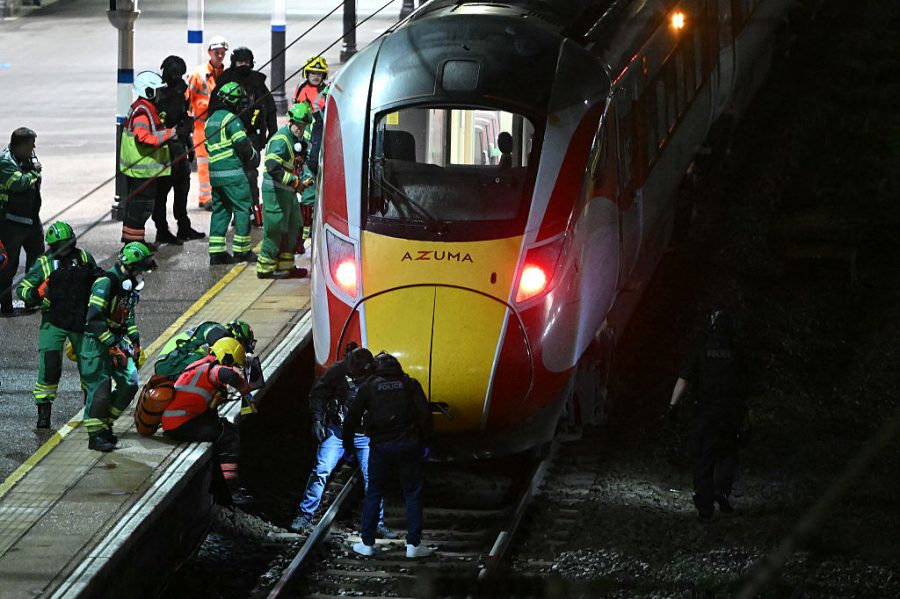Europe’s public broadcasters were created to stop propaganda. Born in the wreckage of war to protect democracy from lies, they now preach soft, sanctimonious, state-approved truths. The resignations at the BBC this week are only the latest symptom of decay across the European media landscape. The model built to keep power in check now serves it.
Public broadcasting was conceived in the aftermath of 1945. After Goebbels and Vichy radio, democracies decided that truth needed its own institutions. The state would fund but not control them. Broadcasters like the BBC, Radiodiffusion Française, Germany’s ARD and Italy’s RAI would speak for the public. For decades, they did. They were calm, factual, balanced and above politics. The voice of reason had replaced the voice of the regime.
Eighty years later, the institutions created to protect the public from propaganda have become propaganda machines of their own. They speak not for the nation, but for the governing class – moralising, selective and allergic to dissent. They were designed to unify and now they divide. They were meant to educate and now they instruct.
In France, Germany and Italy, the broadcasters built to guarantee impartiality have become vehicles for political conformity
In France, Germany and Italy, the broadcasters built to guarantee impartiality have become vehicles for political conformity. France Télévisions, once the sober chronicler of national life, now sounds like the communications wing of the Élysée palace. Its coverage consistently reflects establishment-approved positions and moral framing rather than pluralism. The tone conveys consensus instead of contest, favouring narratives that align with the government’s and the cultural elite’s worldview. When political leaders need airtime, the public broadcaster obliges, interviews in prime time, soft questions, and no follow-ups.
Germany’s ARD and ZDF, once the models of post-war neutrality now speak in the language of official virtue. Tagesschau viewers are treated nightly to sermons on climate urgency, migration and European solidarity. Coverage is filtered through the same moral lens.
The ‘public service’ model has become shorthand for cultural hegemony, the news presented as moral instruction. It’s the same at the BBC, where public service has come to mean moral guidance rather than impartial information, reinforcing rather than questioning the establishment view.
But this system is already cracking. In Germany, ARD has announced 700 redundancies by 2029 and faces public fury after senior executives spent viewers’ money on luxury cars and chauffeurs. France Télévisions is losing younger audiences faster than any other major network. Among under-35s, its share has halved in a decade. Financial investigations have uncovered lavish spending on management perks, inflated executive pay and costly vanity projects. There is a culture of excess that mirrors the waste in government bureaucracies.
For decades Europe’s public broadcasters added channels and multiplied staff. Every bureaucratic reform seemed to produce new departments. Public broadcasting grew like government itself, bloated and inefficient. Just like governments, public broadcasters are convinced of their own indispensability.
But across them all there is now a sense of panic. Funding is stagnant, political support brittle and audiences ageing. The public no longer sees these institutions as guardians of democracy but as relics of it. The public broadcasters’ response is to double down on moralising, mistaking sanctimony for relevance.
In France, the Cour des comptes auditing organisation reports cumulative deficits of €81 million since 2017 and a projected €40 million loss for this year for France Télévisions. The licence fee was abolished in 2022 and replaced with funding directly from the state. This has left the state broadcaster even more dependent on government goodwill. Viewers have fled. CNews, France’s version of GB News, once dismissed by the public broadcaster as a populist sideshow, now leads the French rolling-news market.
The same pattern repeats across Europe, and of course in Britain. All public broadcasters are losing audiences and credibility. Funded by taxes, staffed by graduates with the same narrow view of the world, they now function as cultural ministries rather than newsrooms. Their politics are uniform, their tone paternalistic, their audiences shrinking.
The BBC is merely the first to implode under the weight of this hypocrisy. Its problems are systemic. An organisation that preaches diversity but enforces uniformity of opinion. It still invokes ‘balance’, yet its worldview, on Trump, Gaza, Brexit and gender, has hardened into moral certainty. France Télévisions mirrors it almost perfectly. It’s publicly-funded, Paris-centric, and convinced that dissent is extremism. The more viewers drift away, the shriller its sermons become.
Into the void step GB News in Britain, CNews in France and a noisy constellation of online broadcasters. They’ve rediscovered the sound of argument which public broadcasters have lost. Viewers who feel patronised have turned to people who talk with them, not lecture at them. In doing so, they’ve punctured the illusion that public broadcasters are indispensable to democracy.
The public-service model assumed that citizens would forever consent to be informed from above. They no longer do. Technology has broken this monopoly. What remains are vast bureaucracies talking to themselves, convinced that if only they lecture harder, the audience will come back. Once people stop believing in the neutrality of their national broadcaster, the moral architecture of public service collapses.
Across Europe, taxpayers now fund institutions that no longer do the job they were created to do. They were meant to inform, to unify and to guard against propaganda – yet others now do that job better for a fraction of the cost. The voices of the so-called ‘public’ broadcasters belong to a class that mistakes its own prejudices for enlightenment. Europe’s public broadcasters have become the establishment’s last fortress but they’re crumbling from within.









Comments